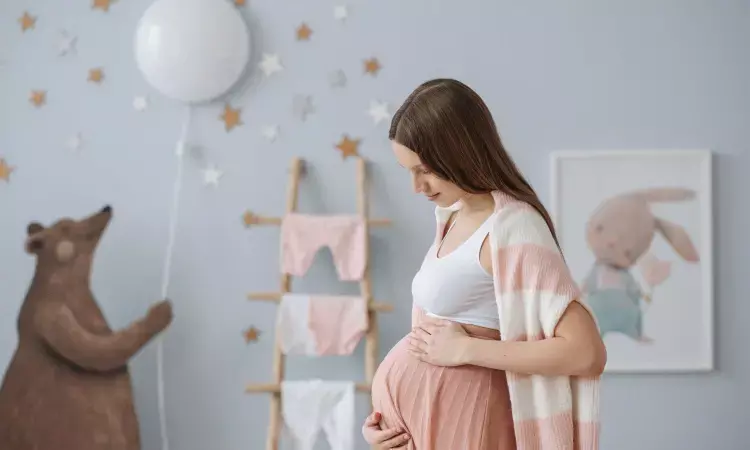- Home
- Medical news & Guidelines
- Anesthesiology
- Cardiology and CTVS
- Critical Care
- Dentistry
- Dermatology
- Diabetes and Endocrinology
- ENT
- Gastroenterology
- Medicine
- Nephrology
- Neurology
- Obstretics-Gynaecology
- Oncology
- Ophthalmology
- Orthopaedics
- Pediatrics-Neonatology
- Psychiatry
- Pulmonology
- Radiology
- Surgery
- Urology
- Laboratory Medicine
- Diet
- Nursing
- Paramedical
- Physiotherapy
- Health news
- Fact Check
- Bone Health Fact Check
- Brain Health Fact Check
- Cancer Related Fact Check
- Child Care Fact Check
- Dental and oral health fact check
- Diabetes and metabolic health fact check
- Diet and Nutrition Fact Check
- Eye and ENT Care Fact Check
- Fitness fact check
- Gut health fact check
- Heart health fact check
- Kidney health fact check
- Medical education fact check
- Men's health fact check
- Respiratory fact check
- Skin and hair care fact check
- Vaccine and Immunization fact check
- Women's health fact check
- AYUSH
- State News
- Andaman and Nicobar Islands
- Andhra Pradesh
- Arunachal Pradesh
- Assam
- Bihar
- Chandigarh
- Chattisgarh
- Dadra and Nagar Haveli
- Daman and Diu
- Delhi
- Goa
- Gujarat
- Haryana
- Himachal Pradesh
- Jammu & Kashmir
- Jharkhand
- Karnataka
- Kerala
- Ladakh
- Lakshadweep
- Madhya Pradesh
- Maharashtra
- Manipur
- Meghalaya
- Mizoram
- Nagaland
- Odisha
- Puducherry
- Punjab
- Rajasthan
- Sikkim
- Tamil Nadu
- Telangana
- Tripura
- Uttar Pradesh
- Uttrakhand
- West Bengal
- Medical Education
- Industry
Women with History of C-Sections at Greater Risk of Infertility and vice-versa, finds study

Previous research indicates that women who have cesarean deliveries tend to have fewer pregnancies, and this procedure is more common among women with lower fecundability.
A study published in the American Journal of Obstetrics and Gynecology showed a bidirectional relationship between CD and fecundability. There could be common underlying causes, and the surgical procedure may not or partially have a significant or sole impact on fertility.
This study examined the connection between cesarean delivery and fecundability. This prospective cohort study was based on data from the Norwegian Mother, Father, and Child Cohort Study and the Medical Birth Registry of Norway. The fecundability ratio and risk of infertility were estimated by mode of delivery in the previous delivery among 42,379 women. The relative risk of having a cesarean delivery was also estimated by fecundability among 74,024 women.
Key findings from the study are:
- The proportion of women with infertility was 7.3% among women with a previous vaginal delivery and 9.9% among those with a prior cesarean delivery.
- The adjusted relative risk was 1.21.
- Women with a previous cesarean delivery had a lower fecundability ratio compared to those with previous vaginal delivery.
- When assessing the reverse association, researchers found that women who did not conceive within 12 or more had higher cesarean delivery risk with an adjusted relative risk of 1.57 in comparison to those who conceived within the first two cycles.
- After controlling for sociodemographic and clinical risk factors, the associations remained and were observed across parity groups.
They said, "This study aimed to explore the relationship between cesarean delivery and fecundability. Women with a history of cesarean delivery are at greater risk of infertility. Conversely, women with lower fecundability are more likely to undergo cesarean delivery."
Study strengths include a large sample size, minimised recall bias and investigation of bidirectional relationships.
Reference:
Sima et al. The relationship between cesarean delivery and fecundability: a population-based cohort study. American Journal of Obstetrics and Gynecology.
Reference:
Sima et al. The relationship between cesarean delivery and fecundability: a population-based cohort study. American Journal of Obstetrics and Gynecology.
BDS, MDS in Periodontics and Implantology
Dr. Aditi Yadav is a BDS, MDS in Periodontics and Implantology. She has a clinical experience of 5 years as a laser dental surgeon. She also has a Diploma in clinical research and pharmacovigilance and is a Certified data scientist. She is currently working as a content developer in e-health services. Dr. Yadav has a keen interest in Medical Journalism and is actively involved in Medical Research writing.
Dr Kamal Kant Kohli-MBBS, DTCD- a chest specialist with more than 30 years of practice and a flair for writing clinical articles, Dr Kamal Kant Kohli joined Medical Dialogues as a Chief Editor of Medical News. Besides writing articles, as an editor, he proofreads and verifies all the medical content published on Medical Dialogues including those coming from journals, studies,medical conferences,guidelines etc. Email: drkohli@medicaldialogues.in. Contact no. 011-43720751


